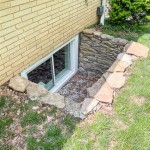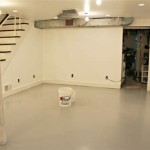Essential Aspects of an Ideal Humidity Level for Your Basement
Maintaining an optimal humidity level in your basement is crucial for safeguarding the space and its contents. Excessive moisture can lead to a host of problems, including mold growth, structural damage, and health issues. On the other hand, overly dry air can cause dryness and irritation in the respiratory system. Here are some essential aspects to consider when it comes to achieving and maintaining a good humidity level for your basement:
Moisture Sources and Control
Identifying potential sources of moisture in your basement is the first step towards controlling humidity levels. Common culprits include water leaks, poor ventilation, and moisture seeping from the ground. Inspect your basement thoroughly for any signs of water entry, such as damp spots or visible cracks. Repair leaks promptly and consider installing a sump pump to manage groundwater seepage. Additionally, ensure proper ventilation by installing exhaust fans or opening windows when possible.
Recommended Humidity Range
The ideal humidity level for a basement typically falls between 30% and 50%. This range is low enough to prevent mold growth while maintaining a comfortable environment. Using a hygrometer to monitor humidity levels and adjust it accordingly is essential. When humidity levels exceed 50%, consider using a dehumidifier to remove excess moisture from the air.
Negative Effects of High Humidity
High humidity levels can have detrimental effects on your basement and its contents. Excessive moisture in the air can foster the growth of mold and mildew, which can cause respiratory problems, allergies, and structural damage to wood and other materials. Furthermore, high humidity can damage electronics and other sensitive equipment.
Consequences of Low Humidity
While high humidity is a concern, overly dry air can also be problematic. Low humidity levels can cause dryness and irritation to the respiratory system, especially during winter months when heated air tends to be drier. It can also lead to static electricity buildup, which can damage electronics and cause discomfort.
Monitoring and Adjustment
Regularly monitoring humidity levels and adjusting them as needed is crucial for maintaining an optimal environment in your basement. Use a hygrometer to track humidity levels and make changes based on the recommended range. If you notice persistent high or low humidity, consult with a professional to identify and address any underlying issues.
Dehumidifiers and Humidifiers
Dehumidifiers are effective in removing excess moisture from the air. They work by drawing in air, condensing the water vapor, and collecting it in a reservoir. Dehumidifiers are particularly useful in areas with high humidity or during summer months. Humidifiers, on the other hand, add moisture to the air. They are beneficial in dry climates or during winter months when the air is typically drier. By using these appliances as needed, you can regulate humidity levels and maintain a comfortable environment in your basement.
Health and Comfort
Maintaining an optimal humidity level in your basement not only protects your space and belongings but also contributes to your health and comfort. Excessive moisture can lead to respiratory issues, while overly dry air can cause discomfort and irritation. By regulating humidity levels, you can create a healthier and more comfortable living environment in your basement.

How To Achieve An Ideal Basement Humidity Of 30 50

How To Achieve An Ideal Basement Humidity Of 30 50

How To Achieve An Ideal Basement Humidity Of 30 50

5 Effective Tips To Reduce Humidity In Your Basement News And Events For Thrasher Foundation Repair

How To Lower Your Basement S Humidity Level

Relative Humidity Chart For Ideal In The House

What Is The Ideal Basement Humidity Level Epp Foundation Repair

What Should Humidity Be In A Crawl Space Nia

How To Measure Check Indoor Humidity In A Home Or Room

Humidity Levels 101 Understanding In The Home St Louis Hvac Tips
See Also








